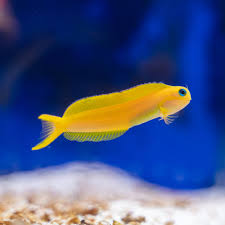The Dragon in Chinese Folk Songs and Traditional Culture

The dragon is one of the most iconic and revered symbols in Chinese culture. It is often depicted as a powerful, benevolent creature associated with imperial authority, strength, and prosperity. However, beyond its role in royal iconography, the dragon also plays a significant part in Chinese folk songs and traditional culture. These songs, passed down through generations, not only highlight the dragon’s symbolic meanings but also reflect the deep-rooted cultural values and beliefs that have shaped Chinese society for centuries. In this article, we will explore the role of the dragon in Chinese folk songs and how it relates to the broader cultural traditions of the country.
The Dragon in Chinese Folklore and Its Cultural Significance
Before delving into the specific role of the dragon in folk songs, it’s essential to understand the cultural and symbolic significance of the dragon in Chinese tradition. In Chinese folklore, the dragon is primarily seen as a symbol of good fortune, power, and protection. Unlike the fearsome dragons of Western mythology, Chinese dragons are revered as creatures that embody wisdom, benevolence, and the harmonious balance of nature.
The dragon is traditionally associated with water, particularly rain, which is vital for agricultural prosperity. This connection to water and rain makes the dragon an important figure in Chinese farming communities, where the dragon is seen as a bringer of abundance and a guardian of the land. The dragon also holds a special place in Chinese imperial culture, symbolizing the emperor’s divine right to rule. The emperor was often referred to as the “Son of Heaven,” and the dragon was believed to be the protector of the imperial family and the nation.
In addition to its association with the emperor, the dragon plays a central role in the spiritual and cultural life of the people. It is a symbol of vitality, strength, and good fortune, often invoked in rituals and festivals to bring prosperity and protection to families and communities.
The Role of the Dragon in Chinese Folk Songs
Chinese folk songs are an essential part of the country’s rich musical heritage. They often tell stories of everyday life, including themes of love, nature, work, and cultural traditions. The dragon, with its powerful symbolism, frequently appears in these songs, either as a central figure or as a metaphor for more abstract concepts like good fortune, protection, or the elements.
In folk songs, the dragon is often used to convey the hopes and wishes of the people. For instance, in many folk songs, the dragon is invoked as a guardian figure, protecting the community from harm and ensuring prosperity. It is also seen as a bringer of rain, which is crucial for farming communities. Songs that reference the dragon often reflect the cyclical nature of life, with the dragon representing both the blessings and the challenges that come with the seasons and agricultural cycles.
One of the most well-known folk songs in Chinese culture is the “Dragon Boat Song” (龙舟歌), which is sung during the Dragon Boat Festival, one of the most important traditional holidays in China. This festival celebrates the life and death of the ancient poet Qu Yuan, and the dragon boat races are an integral part of the celebration. The song reflects the spirit of the festival and the connection between the dragon, water, and the agricultural cycle. The dragon boat, with its dragon-shaped prow, serves as a physical manifestation of the dragon, and the song embodies the people’s hope for good fortune and successful harvests.
Another example of the dragon’s role in folk songs is in the “Dragon and Phoenix” (龙凤) songs, which celebrate the union of a man and a woman, often in the context of marriage. In these songs, the dragon and phoenix are depicted as complementary symbols, representing the harmonious union of opposites. The dragon, as a symbol of male energy and power, is paired with the phoenix, representing feminine grace and virtue. Together, they signify a balanced and prosperous marriage, bringing blessings to the family.
Folk Songs and the Celebration of the Dragon
Many Chinese folk songs are written to celebrate the dragon, especially during festivals and cultural events that are centered around the creature. These songs are often performed during public gatherings, such as festivals, weddings, and other important ceremonies. The songs are meant to invoke the spirit of the dragon and to bring blessings of good fortune, protection, and prosperity to the people.
One such example is the “Long Ma” song, a traditional folk song performed during the Dragon Boat Festival. The song is sung by groups of people who gather at the riverbanks, preparing for the dragon boat races. The lyrics of the song often tell the story of the dragon’s power and connection to water, with phrases like “The dragon rises from the water, bringing rain to the land.” The song is not only a celebration of the dragon but also a prayer for favorable weather, a good harvest, and protection from natural disasters.
In some regions, there are folk songs that specifically commemorate the legendary role of the dragon in Chinese culture. For instance, in certain parts of China, there are songs that tell the story of how the dragon brought rain to a drought-stricken land, saving the crops and ensuring the survival of the people. These songs emphasize the importance of the dragon as a life-giver, linking the creature to the prosperity of the land and the well-being of the people.
The Dragon in Chinese Festival Music
The connection between the dragon and Chinese festivals is deeply embedded in the country’s cultural traditions. The Dragon Boat Festival, which takes place on the fifth day of the fifth month of the lunar calendar, is one of the most significant holidays in China, and it features a wealth of folk songs celebrating the dragon. During the festival, dragon boat races take place, with teams of rowers paddling in boats shaped like dragons. The festival is a time for people to honor the dragon and to celebrate its role in Chinese culture.
The music associated with the Dragon Boat Festival is lively and energetic, often featuring drums and gongs that mimic the sounds of the dragon’s roar. The dragon boat song is a key part of the celebration, with people singing as they race, hoping to bring the dragon’s favor and ensure the success of their endeavors. The rhythmic beats of the drums are said to imitate the beating of the dragon’s heart, and the songs themselves are a way for the people to connect with the dragon’s spirit.
In addition to the Dragon Boat Festival, the Lunar New Year also features songs that reference the dragon. The New Year celebrations are filled with music, dances, and performances, many of which include dragon motifs. During the celebrations, people often perform dragon dances, where participants move in unison beneath a dragon-shaped costume, symbolizing the creature’s power and auspiciousness. The accompanying music, which includes the sounds of cymbals, drums, and gongs, is meant to summon the dragon’s energy and bring good fortune for the year ahead.
The Cultural Impact of the Dragon in Folk Songs
The dragon’s presence in Chinese folk songs is a testament to its cultural significance and enduring influence. Through these songs, the dragon becomes a symbol of the collective hopes, dreams, and fears of the people. The dragon is not just a mythical creature but a living part of Chinese tradition, present in the daily lives of people, from the farmer praying for rain to the newlywed couple seeking blessings for their union.
Chinese folk songs that reference the dragon also serve as a means of preserving cultural heritage. These songs are passed down from generation to generation, and their lyrics are often rich with historical and cultural references. They reflect the values of Chinese society, including respect for nature, the importance of family, and the belief in the divine protection of the dragon.
In the modern era, while some aspects of traditional Chinese culture have evolved or faded, the dragon remains a central figure in the collective imagination of the Chinese people. The dragon continues to appear in popular media, including films, television shows, and advertisements, where it retains its association with power, protection, and good fortune.
Conclusion
The dragon holds a unique and revered place in Chinese culture, particularly in the realm of folk songs and traditional music. It is a symbol of strength, protection, prosperity, and harmony. Through folk songs, the dragon connects the people to their cultural heritage and provides a means for them to express their hopes and desires for the future. Whether in the celebratory songs of the Dragon Boat Festival or in the love songs of marriage, the dragon’s spirit endures as a symbol of the unity between humans and nature, as well as the power of tradition and belief in shaping the destiny of families and communities.


